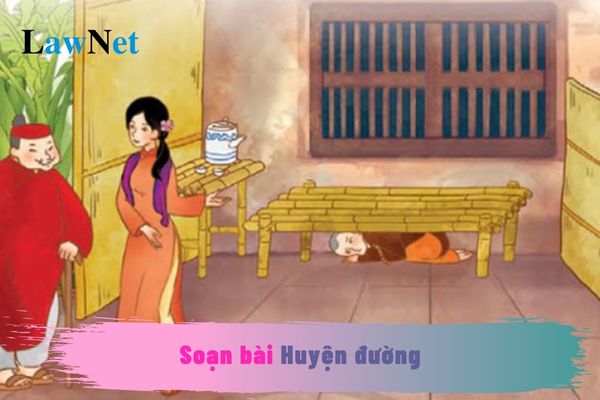Vietnam: What are the guidelines for preparing the briefest lesson "Huyện đường"? What is the grade from which the career-oriented education phase in general education is applied?
What are the guidelines for preparing the briefest lesson "Huyện đường"?
Students may refer to the following sample briefest lesson "Huyện đường":
|
Guidelines for preparing the briefest lesson "Huyện đường" The excerpt "Huyện đường" is a vivid portrayal of the corrupt bureaucracy under feudal policies. Through the dialogue between the district chief and the deputy, the author reveals the true face of those in power, who, entrusted with responsibilities by the people, only know how to exploit their positions for personal gain. |
*Note: Information is for reference only./.

What are the guidelines for preparing the briefest lesson "Huyện đường"? What is the grade from which the career-oriented education phase in general education is applied? (Image from the Internet)
What is the grade from which the career-oriented education phase in general education is applied?
Under Section 4 of the General Education Program issued with Circular 32/2018/TT-BGDDT, the education plan for the academic year regarding the study time for 10th-grade students is as follows:
The General Education Program is divided into two phases:
The basic education phase (from grade 1 to grade 9) and the career-oriented education phase (from grade 10 to grade 12).
The system of subjects and educational activities of the general education program comprises compulsory subjects and educational activities, elective subjects according to career orientation (referred to as elective subjects), and optional subjects.
The actual study time in a school year is equivalent to 35 weeks. Educational institutions can organize teaching for 1 session/day or 2 sessions/day.
Educational institutions arranging teaching for 1 session/day and 2 sessions/day must implement mandatory, unified education content common to all educational institutions across the country.
Thus, according to the regulations, the career-oriented education phase is from grade 10 to grade 12.
The career-oriented education phase (upper secondary education level)
Each day consists of 1 session, with no more than 5 lessons; each lesson lasts 45 minutes. Schools with suitable conditions are encouraged to implement 2 sessions/day as guided by the Ministry of Education and Training.
10th-grade students have an actual study time equivalent to 35 weeks in one school year.
Each day consists of 1 session, with no more than 5 lessons; each lesson lasts 45 minutes. Additionally, schools with suitable conditions are encouraged to implement 2 sessions/day.
What are the 03 development objectives for the general education program in Vietnam?
Under Section 8 of the General Education Program issued by the Minister of Education and Training with Circular 32/2018/TT-BGDDT (amended by clause 1 of Article 1 Circular 13/2022/TT-BGDDT), the general education program will be developed as follows:
- Development of the general education program is a regular activity, including the steps for evaluating, amending, supplementing, and perfecting the program during its implementation.
- Based on the content and required outcomes of the general education program, the Ministry of Education and Training organizes the development of education programs for specific subjects (gifted students, students with disabilities, students in difficult circumstances); schools develop their education plan flexibly and appropriately to the specific conditions and circumstances of the locality, ensuring educational objectives and quality.
- During implementation, the Ministry of Education and Training organizes field surveys, consults with educational management agencies, schools, management staff, teachers, students, parents, and those interested to assess the program, consider adjustments, develop new subject programs (if necessary), and guide the implementation of adjustments (if any).

